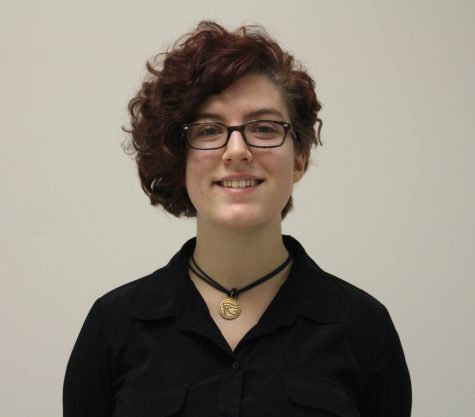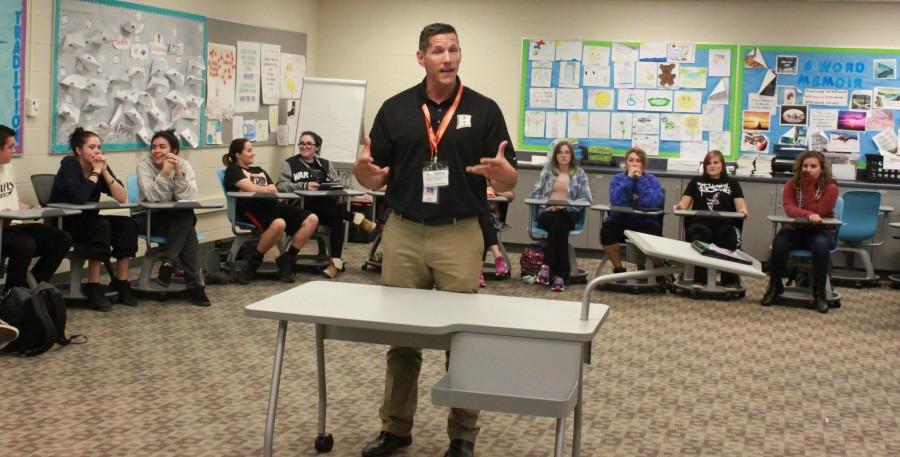GSA celebrates allies during Ally Week
Even with marriage equality, the LGBT community continues to fight for equal rights, and straight allies are important to the continuing movement.
Lunch periods all week will feature the Gay Straight Alliance table, helping people sign their names on slips of paper to claim their alliance. This week is a national event meant to celebrate the allies of the LGBT community who advocate alongside the community for equal rights, said Brian Agustin, science department chair and GSA co-sponsor.
“Ally Week is important because it’s a time for people who aren’t part of the LGBT community to get recognition,” Cade Ryan, sophomore and GSA board member, said. “It also is a time for people who don’t really understand what being an ally is. It gives them perspective and allows them to embrace it.”
Curious how to be a good ally? Here are five tips from GSA members.
- Attend GSA
The main thing that sets allies apart is the willingness to listen to the LGBT community about the state of affairs and about the ways they can help as allies, and to spend time with members of the community.
“Inform your friends about it,” Ryan said. “Encourage people to have an open mind and go to GSA, to give it a shot rather than closing your mind.”
- Defend Others
If the situation is not dangerous, an ally should defend any member of the community. Often, it is even safer for a straight person to stand up to those being homophobic than it would be for an LGBT person, said Ryan, because they are members of the same group – straight people – and thus the person is less likely to bother the ally.
“If they hear something that is derogatory, intervene,” Agustin said. “Inform the Deans about inappropriate behavior.”
However, it is still important for allies to know their surroundings and let LGBT people speak up, too.
“If you hear somebody say things that are disrespectful towards the LGBT community, then stand up. Say something,” Ryan said. But also be considerate. Stand up for the LGBT community, don’t talk over them.”
- You are an Ally, not a Member of the Community
Allies should never speak over members of the community. The A in the extended acronym LGBTQIA+ stands for asexual, aromantic, and agender. Allies are straight, so they are not part of the community, giving them a different role in helping out.
“Understand that you’re helping the LGBT community, you’re not a part of it,” Ryan said. “We need supporters, there’s no question about that, but don’t take credit for what the LGBT community is doing. Be respectful and understand that it’s their achievement and their struggles.”
- Educate yourself and others
There are many resources for learning about the community, and it is important for allies to be educated.
“Learn more about the LGBT community,” Agustin said. “Go online and check out various organizations like GLAAD, GLSEN, Illinois Safe Schools. Within those organizations it talks more about how to be an ally.”
It is also important to pass on this new information, he said.
“If a student comes to you with a question or a concern an ally would listen to this and lead them to the appropriate resources,” Agustin said.
- Acknowledge and Respect Labels
People’s identities are important, and a good ally acknowledges that all people define themselves.
“Respect people’s boxes,” Ryan said. “People talk like, ‘Oh, the LGBT – aren’t you the ones trying to get away from labels.’ But it’s very different when a cat climbs into a box than when you try to force it into a box.”

Brianne is an aspiring writer with many poems and short stories filed away. Her current project is a full-length novel she hopes to publish. She is very...

